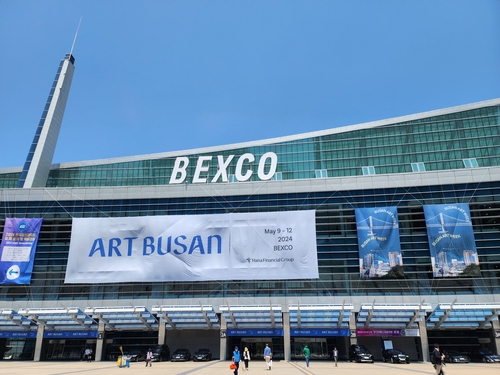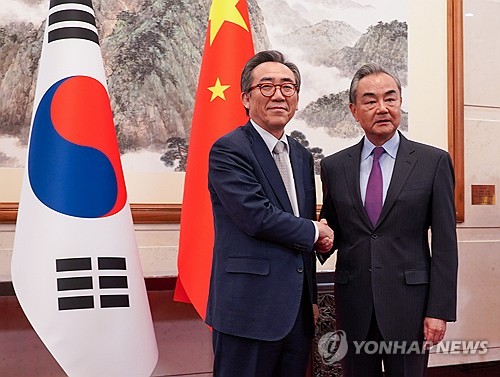Scientists develop new method to produce TPA
SEOUL, June 4 (Yonhap) -- A group of South Korean scientists have developed a new method to chemically produce terephthalic acid (TPA), which is largely used for polyethylene terephthalate, the science ministry said Sunday, a development that could be a boon in the mass production of next-generation industrial plastic.
TPA is a large-volume commodity chemical used principally as a monomer precursor in the manufacture of polyethylene terephthalate, which finds a broad range of applications in making beverage containers, films, and other applications. TPA is an important industrial chemical currently produced by the energy intensive and potentially hazardous p-xylene (pX) oxidation process.
The team, led by Lee Sang-yeob at the Korea Advanced Institute of Science and Technology (KAIST), successfully designed a synthetic metabolic pathway converting pX to TPA, the Ministry of Science, ICT and Future Planning said.
"Here we report the development of a metabolically engineered Escherichia coli system for biological transformation of pX into TPA," the researchers said in a paper.
"In this study, we report a biocatalytic process for the oxidation of pX to TPA by developing a metabolically engineered E. coli strain harbouring a synthetically designed pathway," the paper continued.
Their findings were published in the latest edition of the journal "Nature Communications."
(END)
-
 BTS' RM to prerelease 'Come Back to Me,' music video directed by Lee Jung-jin of 'Beef'
BTS' RM to prerelease 'Come Back to Me,' music video directed by Lee Jung-jin of 'Beef' -
 NIS looking into N. Korea's suspected provision of weapons to Russia
NIS looking into N. Korea's suspected provision of weapons to Russia -
 (Yonhap Interview) Kang Kang-hoon's portrait saga: life seen through his daughter, cotton
(Yonhap Interview) Kang Kang-hoon's portrait saga: life seen through his daughter, cotton -
 Sneak peek of Art Busan shows strong emphasis on female trailblazers
Sneak peek of Art Busan shows strong emphasis on female trailblazers -
 Disney+ 'Uncle Samsik' aims to provoke thought with ambitious characters in turbulent times
Disney+ 'Uncle Samsik' aims to provoke thought with ambitious characters in turbulent times
-
 BTS' RM to prerelease 'Come Back to Me,' music video directed by Lee Jung-jin of 'Beef'
BTS' RM to prerelease 'Come Back to Me,' music video directed by Lee Jung-jin of 'Beef' -
 (Yonhap Interview) Kang Kang-hoon's portrait saga: life seen through his daughter, cotton
(Yonhap Interview) Kang Kang-hoon's portrait saga: life seen through his daughter, cotton -
 NIS looking into N. Korea's suspected provision of weapons to Russia
NIS looking into N. Korea's suspected provision of weapons to Russia -
 Sneak peek of Art Busan shows strong emphasis on female trailblazers
Sneak peek of Art Busan shows strong emphasis on female trailblazers -
 Disney+ 'Uncle Samsik' aims to provoke thought with ambitious characters in turbulent times
Disney+ 'Uncle Samsik' aims to provoke thought with ambitious characters in turbulent times
-
 NIS looking into N. Korea's suspected provision of weapons to Russia
NIS looking into N. Korea's suspected provision of weapons to Russia -
 S. Korea, Malaysia discuss arms industry cooperation in Kuala Lumpur
S. Korea, Malaysia discuss arms industry cooperation in Kuala Lumpur -
 Top diplomats of S. Korea, China set to hold talks on bilateral ties, N. Korea
Top diplomats of S. Korea, China set to hold talks on bilateral ties, N. Korea -
 F-4 fighter jets hold farewell flight after over five decades of service
F-4 fighter jets hold farewell flight after over five decades of service -
 N. Korean defectors send balloons carrying anti-Pyongyang leaflets to North
N. Korean defectors send balloons carrying anti-Pyongyang leaflets to North



















